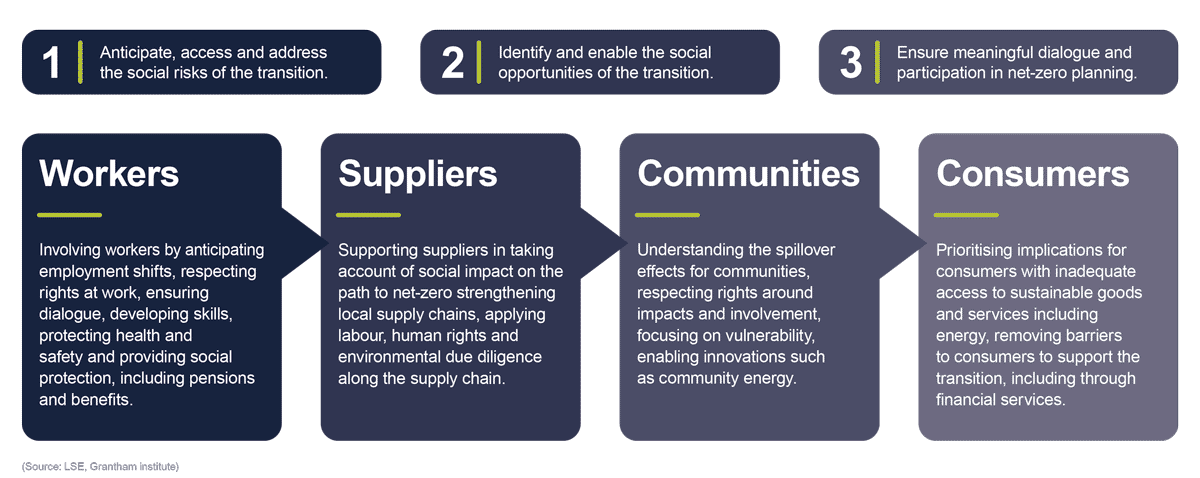
How a Just Transition could affect your business
As strong advocates of the Just Transition, it was reassuring that delegates from nearly 200 countries at COP27 agreed to set up a “loss and damage” fund, meant to help vulnerable countries cope with climate disasters and we look forward to learning more about how this will work in practice.
From a business perspective the impact is just as immediate. As more businesses create net-zero strategies and set science-based targets in line with a 1.5°C pathway, it’s vital to ensure new strategies facilitate a Just Transition for the workforce and local communities. The alternative is a disorderly, unjust, and ultimately costly transition for businesses to navigate.
All companies with a net-zero 2050 target will face big decisions about how their business needs to change, some sooner than others. There is a strong likelihood that the changes required will entail partial or total restructuring, and therefore job losses. How many, where, and when, depends on the industry and company in question. If companies do not properly plan for these jobs, workers, and ultimately communities, could face huge costs.
There have been many examples where poorly managed layoffs have cost companies. Costs can come through protests, strikes, lawsuits, loss of revenue through a tarnished reputation, reduced productivity in the remaining workforce, increased turnover and hiring costs or all of the above – resulting in the loss of social licence to operate.
Businesses who are able to plan early, retrain workers, and proactively manage layoffs as part of a Just Transition, may be able to instead capture the value associated with improved reputation and increased productivity of an empowered workforce.
Various factors – such as Covid-19, the energy and cost of living crisis, high inflation, the human impact of climate change and the transition to a green economy – have shifted the focus to social issues such as human rights, workers’ rights and wellbeing across the supply and value chains. The impact of the climate transition on emerging markets is also well understood, as demonstrated by the commitments made during COP27 to support emerging market communities in the process.

What it means for businesses
The Grantham Institute and Glasgow Financial Alliance for Net Zero (GFANZ) have mapped out the key priorities for embedding the Just Transition into net-zero plans. At time of writing, we consider this to be the best practice approach for businesses to embed Just Transition into their adaptation plans. Their approaches focuses on key stakeholder groups and outlines the best ways to support them with the transition across four core pillars.

On the horizon
Green skills gap.
As part of the transition, in the next few years businesses will need to be focusing on upskilling and reskilling by investing in workforce training, learning courses and local programmes.
In a report published last year, the United Nations Environment Programme highlighted that developing an appropriately skilled workforce for the green economy was critical. To match the rising demand for skills and competences for the green transition, training programmes and education curricula need to be adapted to the needs of the labour market.
There is scope for the public sector and businesses to cooperate and share training and education programmes. Training, reskilling and upskilling should be made available to the wider workforce and in a flexible format to the widest extent possible (for example, online or with flexible hours) to ensure that nobody is left behind. Clear policies should be expanded to attract new talent to green jobs, which can help to alleviate the skill gaps that are a major concern in certain sectors and geographical regions.
For more on ESG and sustainability trends, download our Insight here.
